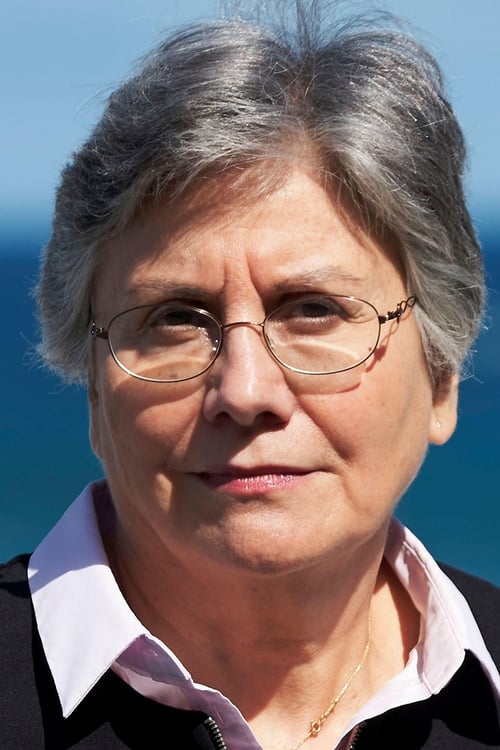
Director
Una película realizada "para aportar al debate interno del Partido Socialista" como lo rememora el propio Ruiz, y que mostraba cómo un publicista de derecha va radicalizándose hasta convertirse en un ferviente activista de izquierda, y un obrero que realiza el viaje opuesto, pasando de la izquierda dura hasta el derechismo absoluto.
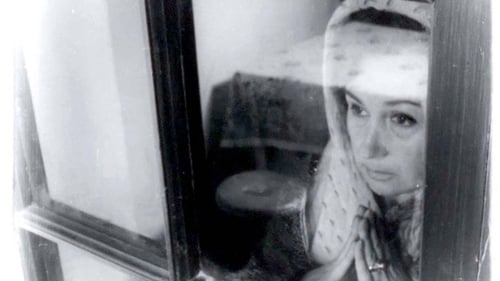
Co-Director
El tango del viudo y su espejo deformante es una película en dos tiempos: en 1967, a través de la mirada de Raúl Ruiz, cuando el director chileno realizaba su primera película de ficción a los 27 años; y en 2020, el momento en que Valeria Sarmiento, la viuda del cineasta, rescató las latas en 35 mm y culminó el proceso que Ruiz no pudo hacer durante casi 50 años. Para darles voz a los personajes, un grupo de sordos especialistas en leer los labios descifró cada palabra que pronuncian los actores. La historia también sucede en dos tiempos: luego de atravesar el dolor por el suicidio de su esposa, un profesor se encuentra frente a frente con ella. ¿Es una ilusión? ¿Es el deseo de volver a verla? El protagonista es seguido a sol y a sombra por su amada, ahora convertida en fantasma, y comienza a mimetizarse lentamente con el espectro que lo persigue multiplicando los interrogantes y los misterios que flotan en la enrarecida atmósfera.

Co-Writer
El tango del viudo y su espejo deformante es una película en dos tiempos: en 1967, a través de la mirada de Raúl Ruiz, cuando el director chileno realizaba su primera película de ficción a los 27 años; y en 2020, el momento en que Valeria Sarmiento, la viuda del cineasta, rescató las latas en 35 mm y culminó el proceso que Ruiz no pudo hacer durante casi 50 años. Para darles voz a los personajes, un grupo de sordos especialistas en leer los labios descifró cada palabra que pronuncian los actores. La historia también sucede en dos tiempos: luego de atravesar el dolor por el suicidio de su esposa, un profesor se encuentra frente a frente con ella. ¿Es una ilusión? ¿Es el deseo de volver a verla? El protagonista es seguido a sol y a sombra por su amada, ahora convertida en fantasma, y comienza a mimetizarse lentamente con el espectro que lo persigue multiplicando los interrogantes y los misterios que flotan en la enrarecida atmósfera.
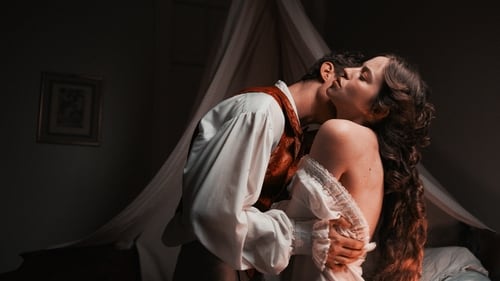
Director
The story of the adventures, in the twilight of the eighteenth century, of a singular couple formed by a little orphan with mysterious origins and his young Italian nurse of a similarly uncertain birth. They lead us in their wake, from Rome to Paris, from Lisbon to London, from Parma to Venice. Always followed in the shadows, for obscure reasons, by a suspicious-looking Calabrian and a troubling cardinal, they make us explore the dark intrigues of the Vatican, the pangs of a fatal passion, a gruesome duel, banter at the court of Versailles and the convulsions of the French Revolution.
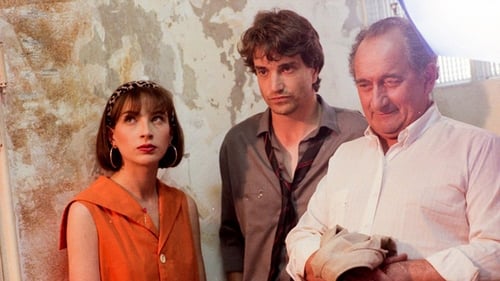
Editor
Una de las cintas perdidas de Raoúl Ruiz, concluida por la cineasta y viuda del realizador, Valeria Sarmiento. Realizado en seis días con actores de telenovelas, es un juego en cuanto a instalar la idea de que todo Chile era una "telenovela". La realidad es, literalmente, la idea de Baudrillard sobre el simulacro. Es una colección de sketches jugando con los acentos y patrones del lenguaje en Chile. Ruiz dice: "Los chilenos a veces se pueden hablar sin verbos ni los sujetos, de modo que no podemos saber lo que uno está hablando. "Mi actitud es la de un 'extranjero'. Intenté mostrar cómo Chile se ha convertido en extraño para mí".

Director
Una de las cintas perdidas de Raoúl Ruiz, concluida por la cineasta y viuda del realizador, Valeria Sarmiento. Realizado en seis días con actores de telenovelas, es un juego en cuanto a instalar la idea de que todo Chile era una "telenovela". La realidad es, literalmente, la idea de Baudrillard sobre el simulacro. Es una colección de sketches jugando con los acentos y patrones del lenguaje en Chile. Ruiz dice: "Los chilenos a veces se pueden hablar sin verbos ni los sujetos, de modo que no podemos saber lo que uno está hablando. "Mi actitud es la de un 'extranjero'. Intenté mostrar cómo Chile se ha convertido en extraño para mí".
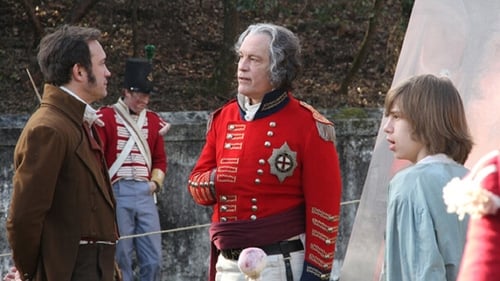
Editor
Narra la historia de la ocupación de Portugal por las tropas napoleónicas a principios del siglo XIX. Realizado por Valeria Sarmiento, la viuda y editora de los filmes de Raúl Ruiz, partiendo de un proyecto póstumo de su marido.

Director
Narra la historia de la ocupación de Portugal por las tropas napoleónicas a principios del siglo XIX. Realizado por Valeria Sarmiento, la viuda y editora de los filmes de Raúl Ruiz, partiendo de un proyecto póstumo de su marido.

Editor
Jane appears to be ideal: attractive, intelligent, unruffled by her employer's abrupt eccentricities. But, gradually, we come aware that Jane has another agenda. Incrementally, Sir Paul's familiar surroundings are altered. His housekeeper is diverted away, strange things happen around the house and he becomes increasingly dependent on his new assistant.
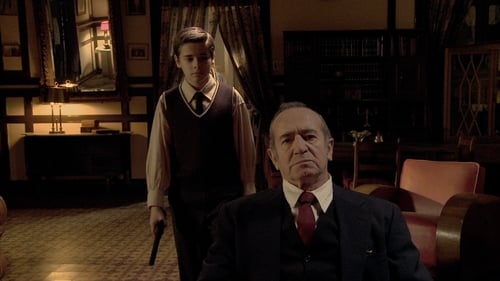
Editor
Un viejo jubilado que espera su inminente muerte, a medias temida, a medias provocada, se pasea por una ciudad medio real y medio soñada, evocando escenas de su infancia, a veces reales, a veces inventadas, que se mueven entre el ensueño y la pesadilla. (FILMAFFINITY)

Editor
La trágica historia de las numerosas vidas del padre Dinis, sus oscuros orígenes y sus piadosas obras, y los diferentes destinos de todos aquellos que, atrapados en una siniestra red de amor, odio y crimen, se cruzan con él a través de años de aventuras y desgracias en la convulsa Europa de finales del siglo XVIII y principios del XIX.

Idea
After long decades of exile, a leftist former activist returns to Chile to settle accounts with his conscience, related to the death of a colleague and political hero . The task of Atalibar is to reveal his secret. But his view clashes with the current country, godless, far from the old ideologies and where all his old colleagues have changed.

Director
After long decades of exile, a leftist former activist returns to Chile to settle accounts with his conscience, related to the death of a colleague and political hero . The task of Atalibar is to reveal his secret. But his view clashes with the current country, godless, far from the old ideologies and where all his old colleagues have changed.

Costume Design
Surreal gothic comedy about a gambler who wins a strange Chilean mansion and takes his frail wife there.
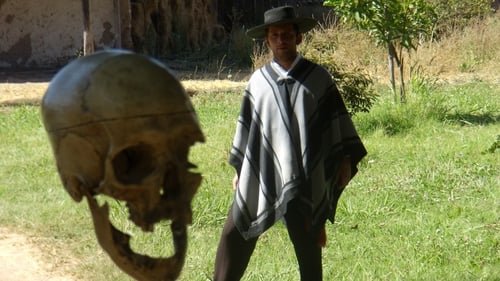
Editor
This was a man. He lived with his mother. He cared a manor house in the countryside of Chile. One day the man found a bone in the garden. The bone was bored. That was a bone flute. The man with the flute music play. And music song became. The voice of the song begging to seek the other bones of his scattered body. The man and his mother were in those ways of God and hell, looking for the bones that make up the skeleton of that Christian. And give him a Christian burial. And they saw what they saw, they lived what they lived. Many stories lived. And although they did not tell anyone, others told them.
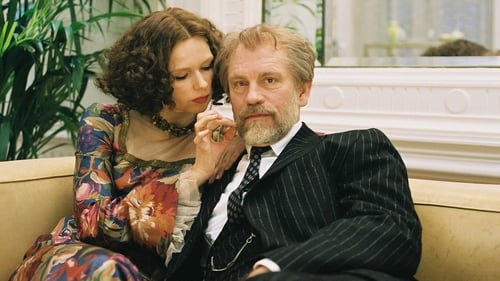
Editor
Retrato del artista austríaco Gustav Klimt, cuyos suntuosos y eróticos cuadros marcaron el estilo Art Nouveau de finales del siglo XIX y principios del XX.
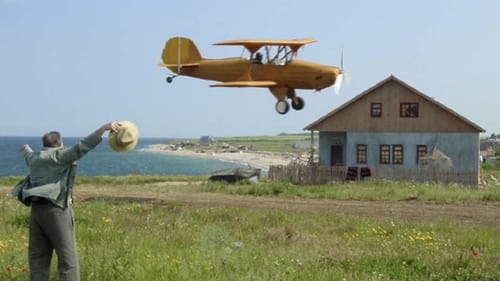
Editor
En 1932, cuando Max tenía 10 años, lo despertó un avión que aterrizó al lado de su casa. No podía imaginar entonces que el piloto Antoine no sólo le abriría los ojos a la belleza del mundo, sino que, además, lo conduciría desde la Segunda Guerra Mundial (1939-1945) hasta las cárceles del Chile de Pinochet (años 70). También ignoraba que el libro titulado "El gran Meaulnes", sería el eslabón que los uniría. (FILMAFFINITY)

Editor
Un escritor de novelillas, se debate entre su talento, los críticos y su mediocre existencia, hasta que un día es contactado por un hombre recto. Él dice ser un asesino en serie, también ser un admirador de su estilo y que le pagará muy bien si escribe una relación verdadera de sus andanzas parisinas de delirio y muerte.

Editor
Un relato policíaco, a medio camino entre el teatro del absurdo y el cine de Hitchcock, centrado en la insólita relación que se establece entre una ingenua heredera que ve ángeles por todas partes y que, además, ha pronosticado que el día siguiente será el mejor día de su vida, y un asesino psicópata que acaba de escaparse del manicomio y que acaba haciéndose amigo suyo.

Director
Chilean director Valeria Sarmiento weaves a tale of love, betrayal, and civil unrest centering around a nightclub in 1950s pre-Communist Cuba in her 2002 romantic drama Rosa La China. Notorious businessman Santiago Ordenez (Juan Luis Galiardo), who primarily goes by the nickname Dulzara, operates a high-profile club/casino with the protection of some local politicians with whom he has dubious relationships. A large portion of the club's success is due to its star singer, Rosa (Luisa Maria Jiminez), who also happens to be Dulzara's lover. Rosa, however, has recently started into another affair with a somewhat younger womanizer named Marcos (Abel Rodriguez).
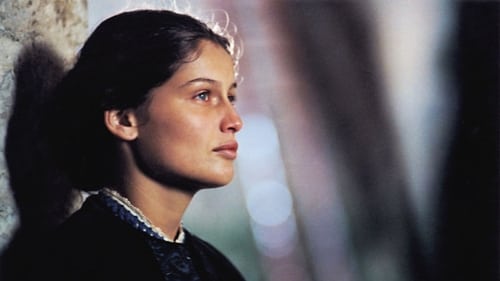
Editor
Fermin y Therese fueron una joven pareja que huyó para poder estar solos, afincándose en Chatillón. Therese empezó a trabar una buena amistad con la familia Numance, una de las más distinguidas de la ciudad, y la joven comenzó a valorar la libertad de su vida y la voluntad de sus propias decisiones. Esto no gustó a Fermín, quien acaba por trastocar el carácter de Therese.
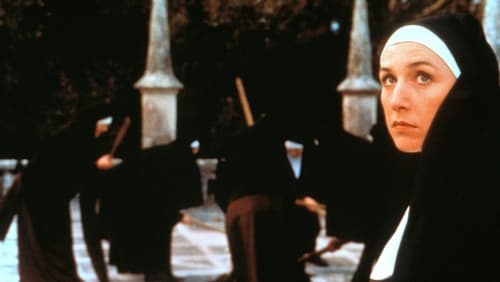
Editor
A serious young man of free spirit is forced by his surroundings to become rich at all costs. A group of blind children tries to open the eyes of the unbelievers to the Christian faith. Retired nuns who open a brothel, to pay the running costs of the convent. These rather ironic paradoxes turn this fairytale into a philosophical fable.

Writer
Madeleine is with her lover, Jean-Paul, when her husband arrives home and catches the two together. Madeleine kills her husband and tells Jean-Paul to flee before the police arrive. After Jean-Paul drives away, he picks up a hitchhiker. When the car, stolen by the hitchhiker, explodes, police believe the dead hitchhiker is Jean-Paul. Madeleine takes up with Jean-Paul's brother, Bastien, while Jean-Paul, arriving in Strasbourg, is mistaken for the heir to a fortune. The detective on the case spends more time writing crime novels than investigating real-life crimes.

Director
Madeleine is with her lover, Jean-Paul, when her husband arrives home and catches the two together. Madeleine kills her husband and tells Jean-Paul to flee before the police arrive. After Jean-Paul drives away, he picks up a hitchhiker. When the car, stolen by the hitchhiker, explodes, police believe the dead hitchhiker is Jean-Paul. Madeleine takes up with Jean-Paul's brother, Bastien, while Jean-Paul, arriving in Strasbourg, is mistaken for the heir to a fortune. The detective on the case spends more time writing crime novels than investigating real-life crimes.
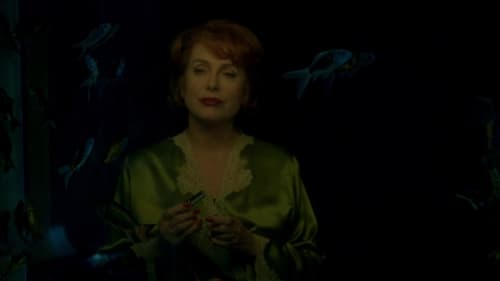
Editor
Una abogada famosa por aceptar casos perdidos, decide defender a un joven acusado de matar a su tía psicoanalista. Todas las pruebas están en su contra, pero ciertos aspectos del crimen -como el extenso estudio que la muerta hizo de la psiquis del joven- van conformando una maraña de pistas y falsas pruebas.

Editor
If any single piece can act as a key to Ruiz, it may be the 1997 short Le Film à Venir (The Film to Come). The titular film is a holy fragment of celluloid that can only be seen by a secret society known as the Philokinetes. They watch it on a loop, somnambulating through a life that is unreal by comparison. It is the belief of the Philokinetes that film has an existence “independent from humans. Cinema, they said, is the primeval soup of a new life form. There from were to emerge pure screening creatures. Which is to say, non-topical beings.” - n+1

Screenplay
The story of a neurotic bachelor who, after marrying a beautiful woman, submits her to increasingly deranged accusations of infidelity and pleas for forgiveness.

Director
The story of a neurotic bachelor who, after marrying a beautiful woman, submits her to increasingly deranged accusations of infidelity and pleas for forgiveness.
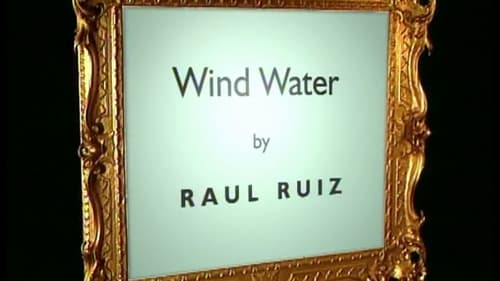
Editor
In Wind Water, Ruiz stages a three-way dialogue between three great cultures: the West, China and Arabia. He imagines what might occur if Shih-T’ao’s six poetic procedures for attaining the primal respiration or cosmic breath in painting were applied to one of the flagships of Western art, Velazquez’s Las Meninas. Ruiz wants the three cultures to interact and test each other like the paper, stone and scissors of the children’s game. The result is an insoluble dispute, a différend. No reconciliation or compromise is possible between these cultural outlooks.

Editor
A surreal travel drama, shot on Sicility with Italian actors. IlViaggio Clandestino is a film about saints and sinners. Whether you areblessed or doomed is often dependent on someone's soul that on whether theypray or suffer. The kindred spirit of San Gil ! the Holy Gil ! is CiccioBavaria who, unilke the former, continues to seek sin. For Bavaria sin isliberating and dynamic. The film tells the story of the journey made by thesetwo protagonists; a journey that leads to the demise of San Gil, while Bavariais reincarnated as Buddha. There is another traveller, a clandestinetraveller. Christ, always fleeing the angels. This Christ does not helphumanity with miracles, but by keeping himself alive as best he can givingweather forecasts.In this strange sainty story, Ruiz allowed himself ot be inspired byapocryphal books about saints of flesh and blood.

Editor
Chile is seen through the eyes of a Chinese painter - a traditional painter who uses the concepts of XVIII century Shih-T'ao.

Adaptation
A well-bred young woman who prizes the virtue of fidelity remains faithful to the doctor who deflowers her, even after he marries her invalid sister.

Writer
A well-bred young woman who prizes the virtue of fidelity remains faithful to the doctor who deflowers her, even after he marries her invalid sister.

Director
A well-bred young woman who prizes the virtue of fidelity remains faithful to the doctor who deflowers her, even after he marries her invalid sister.

Director
Documentary about Cuban education. El planeta de los niños is not a documentary and not a feature film. Sarmiento actually filmed a documentary subject with the mise-en-scène and the cutting of a feature film. Without further ado, she takes the viewer into a world where adults would appear to have died out ; a society within which all functions and professions are held by children with deadly seriousness as if things have always been this way. Only right at the end does Sarmiento reveal that she shot the film at the 'Escuele de Pioneros' set up in Cuba in 1979, an institution which Fidel Castro gave to the children of his people to prepare themselves for a later working life. The film opens with an as-good-as-real wedding ceremony and progresses via a birth to a simulated battle ; from birth to death. The subtle irony with which Sarmiento portrays this 'Utopian' world was not understood by all German critics.

Editor
Brise-glace está compuesta de tres partes originales filmadas durante los viajes del barco rompe hielos Frej, de la marina sueca, en Marzo de 1986.

Editor
A series of philosophical dialogues on friendship, architecture, electricity, cannibalism and human rights.

Editor
H., 35, an Arabian immigrant, works as projectionist in an old cinema. One day, drawn by the music, he looks through the window of the booth and is fascinated: the dancer he sees on the screen seems to be looking straight into his eyes. He falls in love with her, but the vision last only a moment. Shortly afterwards, an elderly man storms into the projection booth and claims he is his uncle.
H. wants to prepare a meal for him and reaches for the oil bottle: he sees the same dancer on the label…. H begins to find echoes of his own life in the images he projects. Everything changes when fiction and reality merge...

Editor
Third and final part of collaborative project Brise Glace. Directed by Raúl Ruíz.

Thanks
A butcher whose meat is most tender, surrounded successively by ephemeral and delightful cashiers.

Editor
A man comes to visit an acquaintance who is supposed to be sick and talks to his sister while he is waiting.
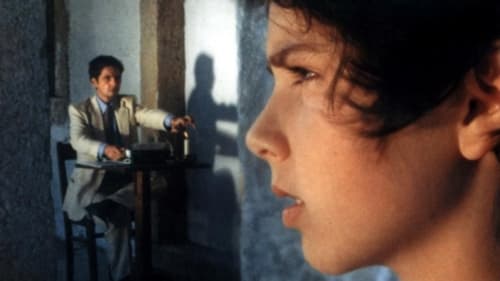
Editor
Jim is a small child who lives in an inn run by his parents. The arrival of a strange captain to the Island they live will trouble his existence and tip him into an universe of adventures.

Screenplay
A sickly young girl is given away by her father to a childless couple. Twenty years later, she marries her adopted father.

Director
A sickly young girl is given away by her father to a childless couple. Twenty years later, she marries her adopted father.

Editor
In Voyage of a Hand, Ruiz constructs another of his concentric labyrinths that hits us right in the multifaceted center of our confusion. We might decide that what we receive was a story full of intentions; or we might decide that it was a spineless joke empty of sense or direction. In any case, it will be difficult to deny the acid sense of humor that animates the film.

In Voyage of a Hand, Ruiz constructs another of his concentric labyrinths that hits us right in the multifaceted center of our confusion. We might decide that what we receive was a story full of intentions; or we might decide that it was a spineless joke empty of sense or direction. In any case, it will be difficult to deny the acid sense of humor that animates the film.
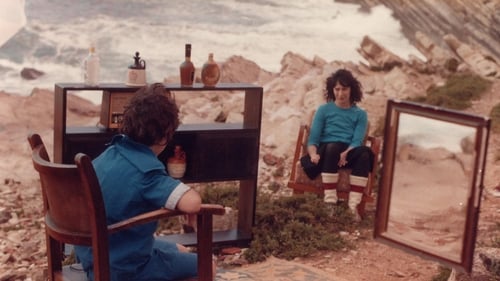
Editor
Isidore es una mujer que vive con sus padres adoptivos. Su padre espera que ella se suicide, pero por el contrario, Isidore irá conociendo a extraños personajes que la acompañarán en un viaje metafísico y criminal.

Editor
La película comienza con una premisa: un estudiante debe salir de Francia pues ha cometido una ilegalidad, un marinero le ofrece su puesto en un buque mercante que está por zarpar, pero a cambio de que escuche su historia. A partir de ahí, el relato no arranca verdaderamente, sino que explota, estalla en múltiples relatos de la vida del marinero y sus encuentros con diversos personajes (un ciego, una bailarina, un hombre de 90 años, un intelectual, entre otros).
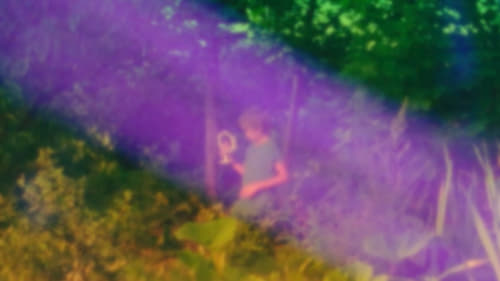
Editor
A parody of anthropology, linguistics, and cultural imperialism. The film follows an unlikely team of linguists into the wilds of an ersatz Patagonia to study the last speakers of a dying language. That language apparently consists of a single word, which therefore means everything.

Writer
What are the social climate and cultural traditions in Costa Rica which nurture "machismo" and allow the domination of women to continue in Latin America?

Director
What are the social climate and cultural traditions in Costa Rica which nurture "machismo" and allow the domination of women to continue in Latin America?

Editor
A small group of well-to-do vacationers go on a hiking trip into the woods. Foolishly unprepared to deal with Mother Nature and their situation, they wander around lost for days and weeks, becoming more and more fatigued, hungry, and desperate. A brief encounter with a pair of epicureans on a bridge fails to garner them any of the gluttons' feast due to a language barrier. Eventually their party begins to die, and the survivors ration their meat among them, attaching a religious-type ritual to its dispensation.

Editor
The film concerns a group of disparate types who support themselves by running guns to the Arabs. On the surface, it would seem that these characters are bad guys. In fact, the guns are to be used by a resistance group who hope to continue shipping oil to the West, despite the despotic curbs imposed upon fuel shipments by their leaders.

Editor
In 1978, Ruiz was commissioned to make a television documentary about the French elections from the viewpoint of a Chilean exile in Paris’ eleventh arrondissement. But, contrary to the producers’ expectation, the Left lost. Ruiz seized on this anti-climax to make a documentary about nothing except itself – a film whose central subject is forever lost in digression and ‘dispersal’, harking back to his Chilean experiments of the ‘60s. Its political content is deliberately left negligible: it’s hard to tell at the end who did actually win the election, let alone why.

Editor
With his body now devoid of substance and able to fly, N. wanders looking for a way to return to life and reintegrate into the world.

Editor
A charming tale of murder, perversity and narrative echoes told through shots of barking dogs and a La jetée-like series of stills.

Editor
El film comienza con Moullet y su pareja desayunando bananas, huevos y atún. La pregunta que da origen al documental es: ¿de dónde provienen estos alimentos? Así, Moullet averigua qué compañías los fabrican y comienza una investigación que lo lleva a África y a Ecuador, a los orígenes de la cadena productiva del atún y la banana, respectivamente. ¿Quiénes son estos trabajadores? ¿Cuánto ganan? ¿Ganan más o menos que trabajadores franceses? ¿Qué comen? ¿Cómo viven? Moullet intenta responder estas preguntas desde una perspectiva marxista. (FILMAFFINITY)

Editor
The film centers on a Dominican monk named Jérôme (played by one actor in colour and another actor in black-and-white) and his interactions with various higher-ups within the French Catholic Church. Ruiz's intention was to reflect the ideological arguments that plagued Latin American left-wing political parties.

Editor
La confesión, sincera y descaradamente, de la vida del pintor Ocaña y la reconstrucción de su mundo, sus provocaciones y sus experiencias. Ocaña, con alegría y de sus desafíos creativos de marginación: travestismo como provocación, religión y fetichismo, represión del machismo, desorden, homosexualidad ... La vida marginal que estaba oculta durante la dictadura de Franco se muestra abiertamente en el contexto de un único artista. Una película legendaria y de culto.

Editor
La búsqueda de un cuerpo fragmentado y el encuentro con la utopía política.

Editor
Poco después de la caída de Salvador Allende en Chile, un artista que simpatiza con la Junta Militar de Gobierno llega a París para cantar sobre lo que él considera la nueva realidad del país. Un grupo de exiliados chilenos se topa con él y deciden secuestrarlo de una manera bastante peculiar: llevándolo de farra. Pronto, sin embargo, resurgen sus vicios más pesados: la incapacidad de organizarse, el asambleísmo inoperante que los obliga a votar hasta para tomar las más nimias decisiones, las diferencias de clase entre los exiliados burgueses y los exiliados obreros y, en particular, la vacía retórica de un discurso político más preocupado por conseguir aplausos (y fondos de ayuda internacional) que de resolver su situación.

Screenplay
The life of a right-wing housewife in Chile during the prior days to Salvador Allende's military overthrow.

Editor
The life of a right-wing housewife in Chile during the prior days to Salvador Allende's military overthrow.

Director
The life of a right-wing housewife in Chile during the prior days to Salvador Allende's military overthrow.

Editor
Historia centrada en una familia de derecha que decide autoexiliarse en Europa tras el triunfo de Salvador Allende en las elecciones presidenciales de 1970; sólo para perder su cómodo status socio-económico y verse sometida a una dramática proletarización que llevará a todo tipo de conflictos familiares.

Editor
El filme recoge las acciones de los habitantes del campo en el Sur de Chile y de la CORA (Corporación de la Reforma Agraria). La acción fue filmada en cuatro días y cuatro noches en 1971. Aunque la película fue filmada durante cuatro días en Chile, solo fue terminada en Francia 1973, tras el Golpe Militar.

Director
Sarmiento made her directorial debut with the documentary with this short about a group of Chilean women dedicated to striptease.

Screenplay
A brutal sexual murder of a minor revolts the anger of the town. On the other hand, a psychologist, Sofia Belmar is not only shocked by the event, but this also brings back some of her more gruesome memories.

Director
A brutal sexual murder of a minor revolts the anger of the town. On the other hand, a psychologist, Sofia Belmar is not only shocked by the event, but this also brings back some of her more gruesome memories.
